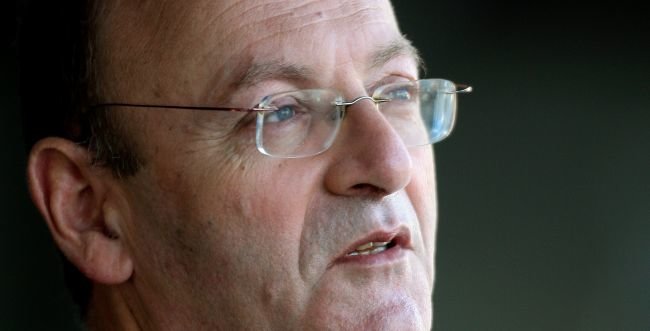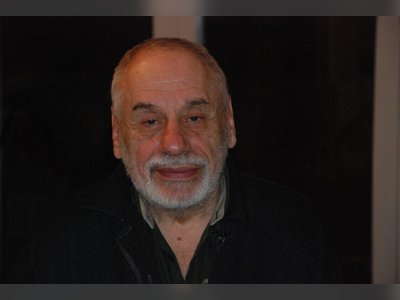Samuel (Shmulik) Hasfari: An Israeli Playwright, Satirist, and Filmmaker

Samuel Hasfari was born on August 26, 1954, in Ramat Gan, Israel. His parents, Mordechai and Tziporah, were Holocaust survivors who immigrated from Poland. During his youth, Hasfari pursued studies in Jewish philosophy, Kabbalah, and the history of the Jewish people at the Hebrew University of Jerusalem. It was during this time that he began to question and explore his own beliefs.
In the early 1970s, Hasfari was a member of the Betar youth movement. He served in a combat unit in the Israel Defense Forces during the Yom Kippur War in 1973. In 1979, he abandoned his doctoral studies in medieval philosophy and turned to study directing at Tel Aviv University's theater department.
In 1981, Hasfari left the theater studies group along with a group of students and founded "The Simple Theater" with them. This unique theater group produced five plays, with their first production being "A Black Wedding." Co-written by Hasfari and inspired by the biblical verse "A woman, her husband, and her lover" from the Book of Proverbs, the play premiered at the Akko Festival in October 1981, earning third place.
The group's second play, performed in March 1982, was "Eliezer Shoshani and/or Eliko Ben Shoshan," an adaptation of a story by Yitzhak Ben-Ner, originally published in the newspaper "Haaretz" and later included in his book "A Distant Land." Their third play, "Tashmad," won the first prize at the 1982 Akko Festival. "Tashmad" tells the story of four extremists who barricade themselves in an imaginary settlement's storage shed in the Gaza Strip on Yom Kippur in 1974, threatening to blow themselves up if forced to evacuate. The play was later performed at the Neve Tzedek Theater in early 1983.
In addition to "Tashmad," the group also presented "The Laughter Monster," a children's play, in the same year. At the end of 1983, the group performed the play "Matan Torah BeShesh" at the Khan Theater. This play depicts Moses entering a hundred gates of understanding.
In early 1984, their play "Abba Ovo," an adaptation of "King Oedipus," was performed at the Khan Theater. In 1985, their play "Kiddush," written and directed by Hasfari in 1980, was performed at the Cameri Theater and won the Israeli Theater Award for Best Play of the Year. In the same year, Hasfari was appointed as the house playwright at the Be'er Sheva Theater.
After the group disbanded, Hasfari wrote and directed approximately twenty plays, including "The Last Secularist," "Locks," "After the Holidays," "Angels in America," and "The Supervisor" at various theaters such as the Cameri Theater, Haifa Theater, Be'er Sheva Theater, Habima Theater, and the Cameri's small stage. He also directed children's plays, "The Laughter Monster" and "The Adventures of Shimshon Bar Lechon."
He served as the artistic director of the Acre Festival and the Cameri Theater. His plays often addressed current and controversial topics. The quartet of "Kiddush," "Chametz," "Shiv'a," and "Havdalah" provided a critical look at the life of a religious-nationalist family in Israel. "Tashmad" portrayed the extremism of settlers who barricade themselves with explosives.
"Gisato Shel Goldin" dealt with the clash between religion and the return to religious observance and the secular world. In his youth, Hasfari was associated with the far-right, but during his period of self-discovery, he adopted liberal views that he expressed through his work.
In December 1986, the Israel Film and Stage Censorship Board banned Hasfari's play "The Last Secularist," which had been staged at the Cameri Theater. The play was a satirical cabaret about the ultra-Orthodox presence in Israeli public life after the rise of religious parties to power. It was banned on the grounds that it "seriously offends fundamental values and the feelings of the wide public, both religious and secular alike.
This is a satire that incites and could lead to the incitement of hatred." After a public outcry and debates in the Knesset, the board allowed the play to be performed after certain changes and cuts were made.
In protest of the theater management's decision to present the censored version, Hasfari, musician Uri Vidislavski, and costume designer Yael Perdes removed their names from the production. Following this incident, the Minister of Education and Culture, Yitzhak Navon, initiated a process to abolish censorship on plays and limit it to films, mainly restricting viewing by certain age groups.
In addition to his work in the theater, Hasfari expanded his career to television and cinema. In 1989, he wrote the screenplay for the film "The Intended" and the drama "And All the People of the Earth Shall See," based on his play "Gisato Shel Goldin," which was broadcast on Channel 1. In 1992, he wrote and directed his first film, the drama "Every Dish," which was broadcast on Channel 1 and starred Shmuel Vilozhny.
In 1994, Hasfari participated in writing for the successful satirical program "The Chamber Quintet." In the same year, he directed his most significant film to date, "Shahor" (Black), based on a screenplay by his wife, Hanna Azoulay Hasfari. The film was highly successful and received six Ophir Awards, including Best Director and Best Film. "Shahor" also earned Hasfari a commendation at the Berlin Film Festival.
In 1997, he directed the television film "Campaign," starring Hanna Azoulay Hasfari, Shmil Ben Ari, and Alon Aboutboul. In 2005, he directed "The Schwartz Dynasty."
Hasfari also wrote screenplays for TV shows like "Keshet ve'Anan" and "Zehu Ze!" He also wrote the lyrics for the song "Winter '73," performed by the Education Corps Band, which achieved success in many countries.
In 2009 and 2011, he wrote and directed the series "Polishook" for Channel 2. The series, which ran from May 31, 2009, to January 12, 2015, comprised three seasons and received widespread acclaim.
In 2021, he returned to directing with another political comedy, "Sweet Bullet in the Middle," for Channel 11.
Activism
In the summer of 2009, Hasfari, together with Eldad Yaniv, published a document titled "The National Left." This document served as a manifesto outlining his political, policy, and societal views.
In 2011, the Cameri Theater staged Hasfari's play "HaHavdala" in Ariel. Following this event, Hasfari severed his ties with the theater, citing a contractual clause that required him to seek permission whenever one of his plays was performed outside of Israel.
Personal Life
Samuel Hasfari is married to actress and creator Hanna Azoulay Hasfari, and they have three children. His sister, Ruth, is married to Professor Avi Ravitzky.
- שמואל הספריhe.wikipedia.org
